Taking place during the tail end of the 5th Century, we find Artorius Castus (Clive Owen) — Arthur being a Celtic version of Artorius — with his Knights of the Round Table guarding one of the outermost boundaries of the Roman Empire. The remaining men under his command include Lancelot (Ioan Gruffudd), Tristan (Mads Mikkelsen), Galahad (Hugh Dancy), Bors (Ray Winstone), Gawain (Joel Edgerton), and Dagonet (Ray Stevenson), all who were Sarmatian horsemen, mandated to perform compulsory militaristic service for the Roman army. On the eve of their retirement, having fulfilled their 15-year term of service, their writs of freedom are, instead, suddenly withheld and they are given one final mission.
“Damn it, I was just five minutes away from retirement.”
Their mission, if they choose to accept it — which they must or be hounded as deserters — is to rescue a member of the Roman aristocracy who is living far north of Hadrian’s Wall. Being that there is an army of thousands of invading Saxon warriors heading their way, led by their brutal leader Cerdic (Stellan Skarsgård), it is a matter of utmost urgency that Arthur and his men are sent out on what is most likely a suicide mission. Along the way, they encounter the dark magician known as Merlin (Stephen Dillane) — his magical abilities are only rumoured and none are on display in this movie — and though he is the leader of the Woads (Picts), and he is the one whom Arthur and his knights have been fighting for decades, they manage to form an uneasy alliance against the greater threat of the invading Saxons. This movie also introduces to us a very different version of Guinevere (Keira Knightley). No longer is she a damsel in distress, but, instead, she is a warrior in distress — I guess that’s better — and she is found being held captive by the very same group that Arthur was sent to rescue from the Saxons. Now, it’s fair to say that the screen doesn’t exactly burn up with the budding romance between these two, with Clive Owen and Kiera Knightley having zero chemistry together, but then again, Antoine Fuqua was not all that interested in making a love story — he was all about making a grand historical epic.Note: I’m all for depicting Guinevere as a badass warrior, but one look at Kiera Knightley and all I could think of was, “Could someone get this girl a sandwich?”
Now, if none of this seems very “Arthurian” to you, you’re not alone, as Antoine Fuqua and screenwriter David Franzoni couldn’t have cared less about the Arthurian legend or its possible historical origins. The namechecking of Arthur’s legendary Knights of the Round Table in this film ranged from pointless to just plain insulting. Not to mention the fact that giving people supposedly from the Eurasian Steppes names like Lancelot and Galahad is moronic, and even worse is the complete lack of any of these “knights” having the character traits of their legendary counterparts. Aside from Lancelot being depicted as Arthur’s closest friend, nothing else is even remotely close to what is found in the legendary stories.
If we forget that the original Knights of the Round Table were Britons (knights of Romano-Celtic Britain fighting for the freedom of Britain against the Saxons), and not press-ganged Sarmatian horsemen, we still have to deal with Antoine Fuqua’s horrible version of these knights.
"We’re Knights of the Round Table. We dance whenever we’re able."
In this movie, Bors is a boorish and lusty warrior and the father of many bastards, which differs greatly from his namesake whose purity and celibacy allowed him to witness the Holy Grail, according to legend. As for Dagonet of Arthurian legend, he was a cowardly court jester who would often dent his own shield so that it appeared he’d been in a fight, but in this movie, Dagonet is a badass fighter who sacrifices his own life so that the others can escape the approaching Saxons. This all begs the question: if you are going to diverge so far from the legends, why even bother using those names? It’s not like Bors and Dagonet were all that familiar to the general public to begin with, and if that’s not enough to piss off fans of Arthurian lore, the movie also leaves out the love triangle between Arthur, Guinevere, and Lancelot, one of the most famous tragic love stories in history. If you are going to make that many changes from the source material, why use the Arthurian tale to begin with? This could have easily been a movie about the last days of the Roman Empire in Briton, with no need to namecheck the likes of Galahad and Lancelot or Guinevere.Pissing all over the Arthurian myth wasn’t the only crime the filmmakers here are guilty of, as their claims of giving us “The True Story Behind the Legend” is an even bigger affront to lovers of history.
Merlin and his band of misfits.
The King Arthur of myth and legend sat upon the throne of Britain within the walls of the fabled city of Camelot, where he and his knights held to a strict chivalrous code of ethics that was symbolized by the Round Table, which placed no man in higher standing than another. Now, in Antoine Fuqua’s King Arthur, we have Arthur spouting off that “You ...were free from your first breath!” with him citing the works of Bishop Pelagius to back this outlandish claim. Not only was Pelagius not a bishop, but he also was a monk who died of old age and was decidedly not murdered for his beliefs as depicted in this film, and he certainly didn’t advance any theories about political freedom. Instead, he resisted the doctrine of original sin, arguing that one was able to perform good works and achieve salvation by sinlessness alone without requiring spiritual Grace.“They may take away our lives, but they’ll never take our freedom!”
This skewing of history is a common occurrence in movies where the filmmakers want to give the hero more modern and enlightened sensibilities, much like what was done with Zack Snyder’s 300, where the King of Sparta was always yelling about “freedom” despite the fact that Sparta was a slave state, and in the case of this particular King Arthur, the film undercuts its own message by stating right off the top that Arthur’s knights had been pressed into involuntary servitude. You can’t have it both ways Hollywood.Stray Thoughts:
• Why was a member of the Roman aristocracy living in a land unclaimed, unoccupied and undefended by the Roman army?
• Upon seeing the Round Table, the Bishop’s aid gasps, “A round table, what sort of evil is this?” I never knew circular furniture was considered the work of the Devil.
• Arthur gives so many speeches about freedom that it’s clear this movie desperately wanted to be Braveheart.
• Lancelot was Galahad’s father, yet they’re depicted here as just compatriots.
• Once again, we get a Merlin who has no magical abilities, but this film goes one step further by removing him from the role of Arthur’s mentor.
• Guinevere is surprisingly good with a bow despite recently having her fingers dislocated.
• This movie presents the idea that Roman soldiers used their swords as grave markers which is beyond the pale ridiculous. A sword would be much too valuable to waste, and this idea is only presented here as such so that we can get a young Arthur pulling Excalibur from his father’s grave.
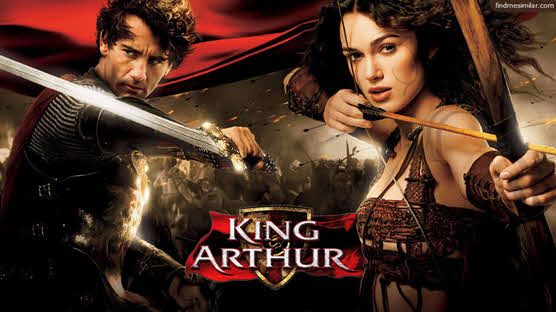
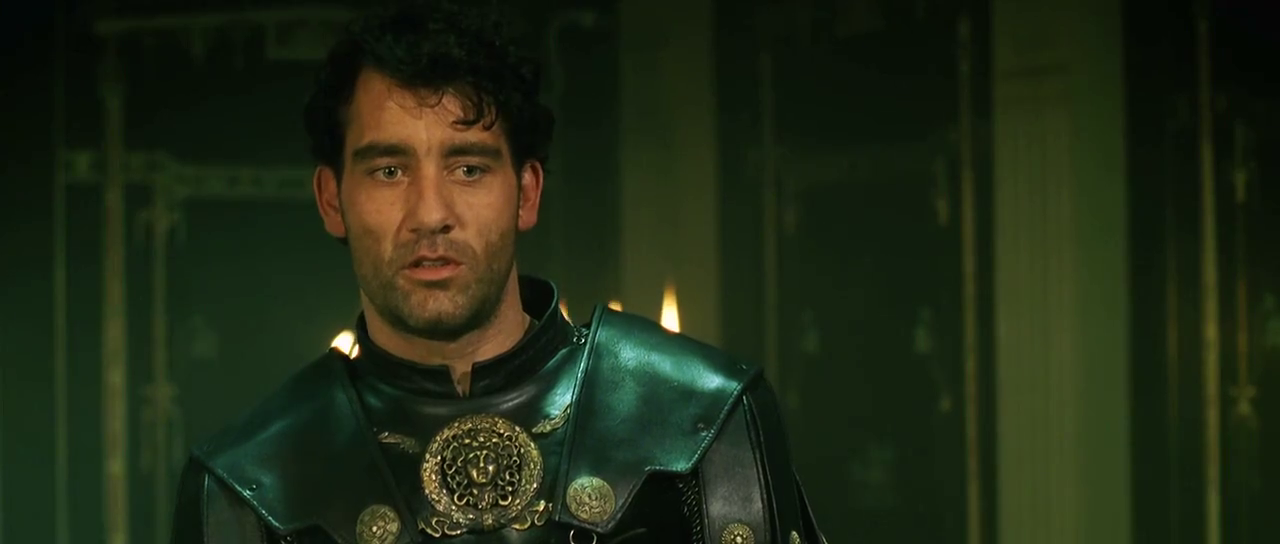
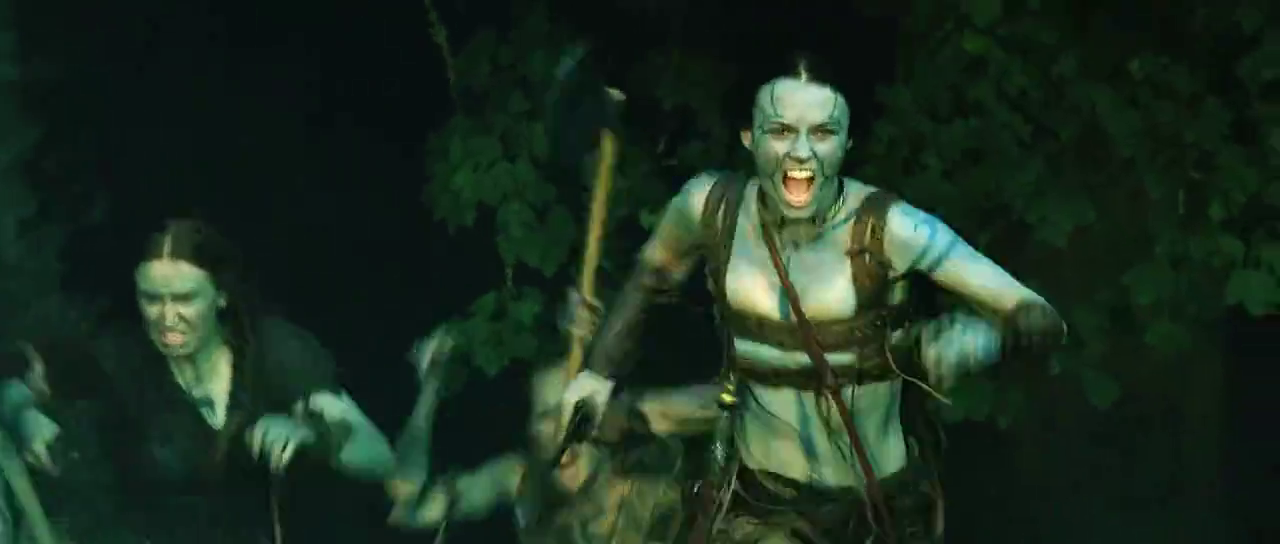
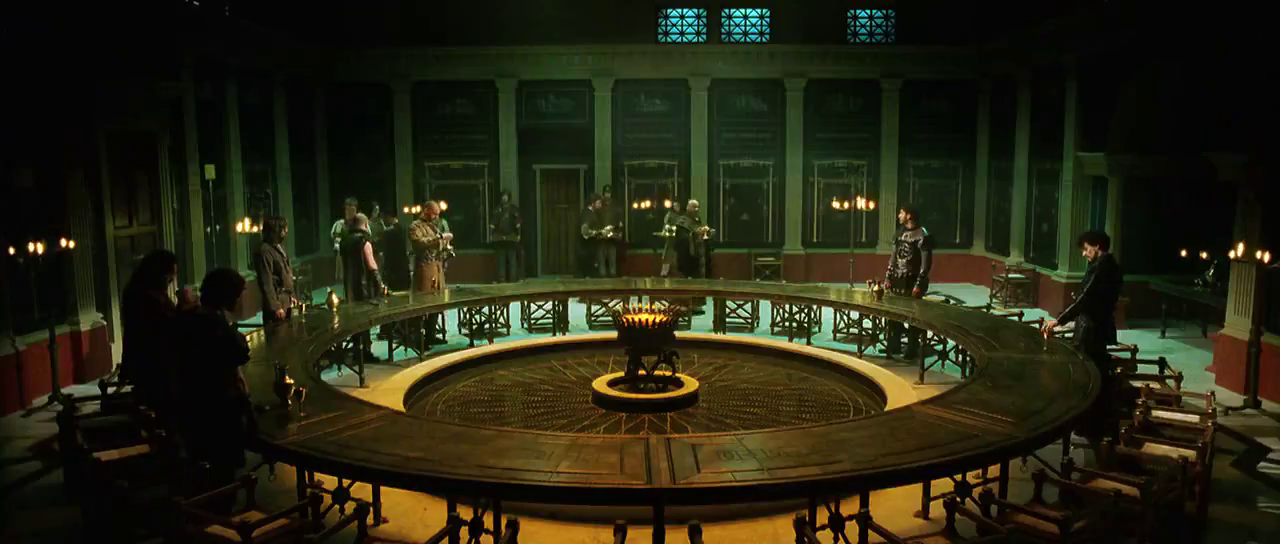
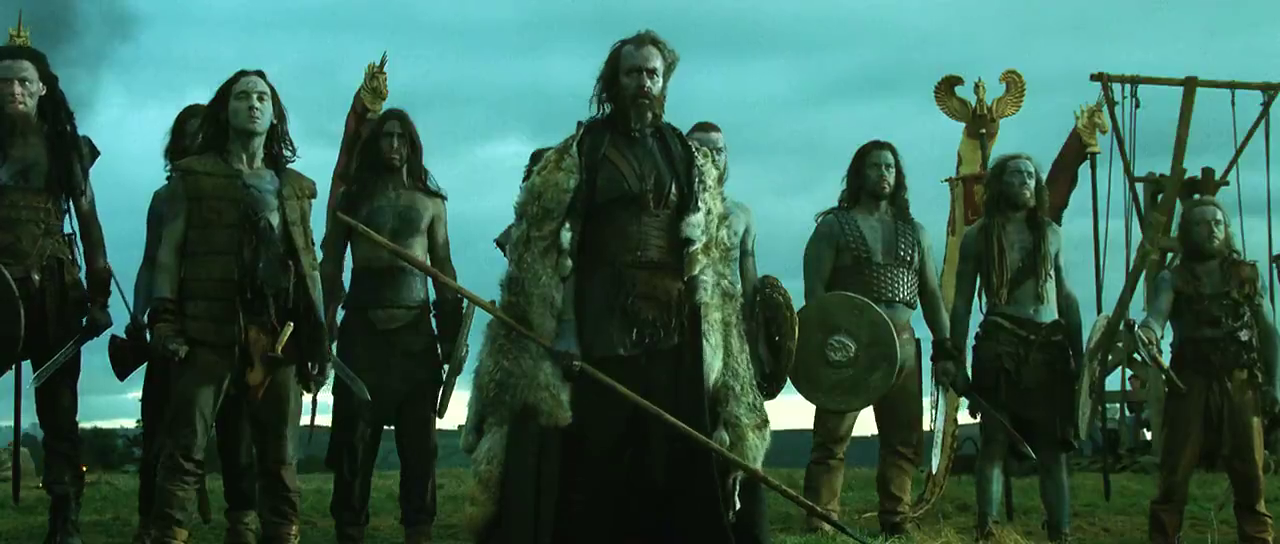
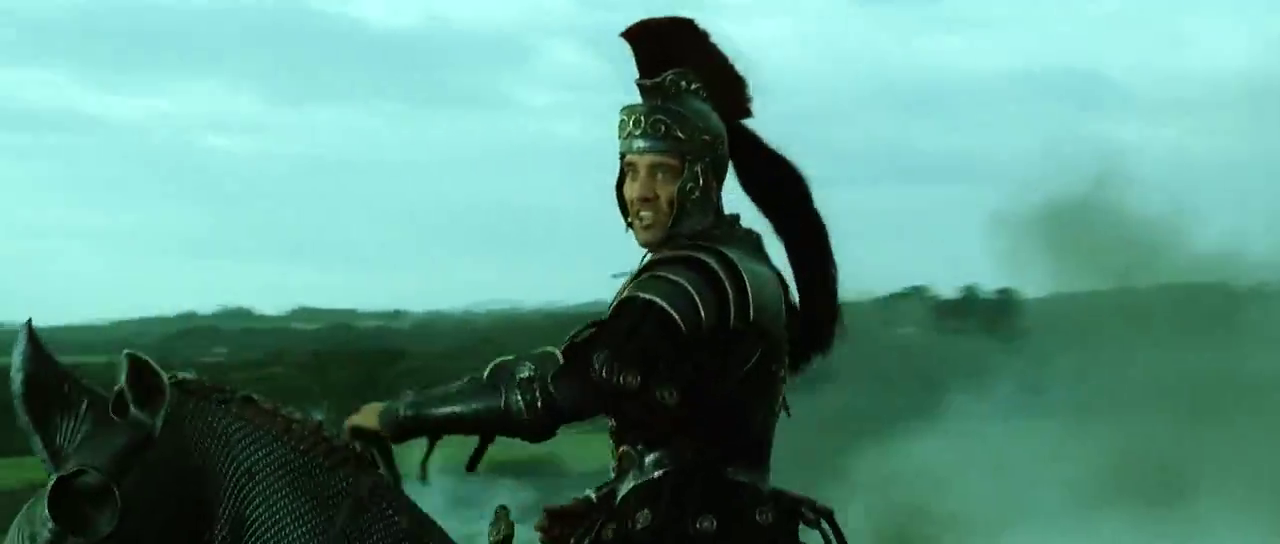
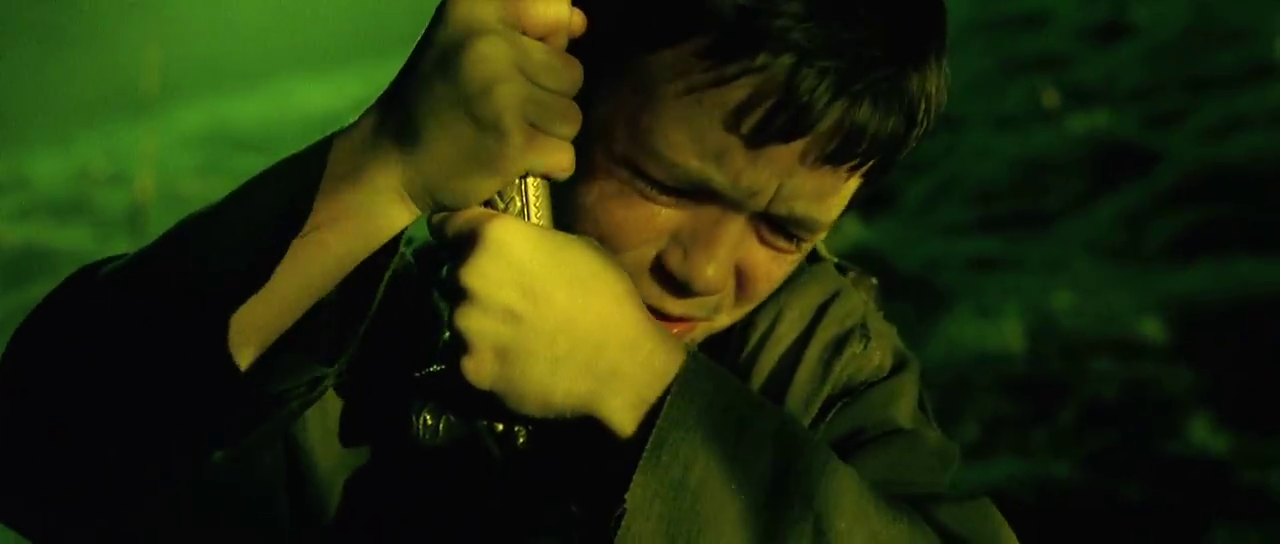
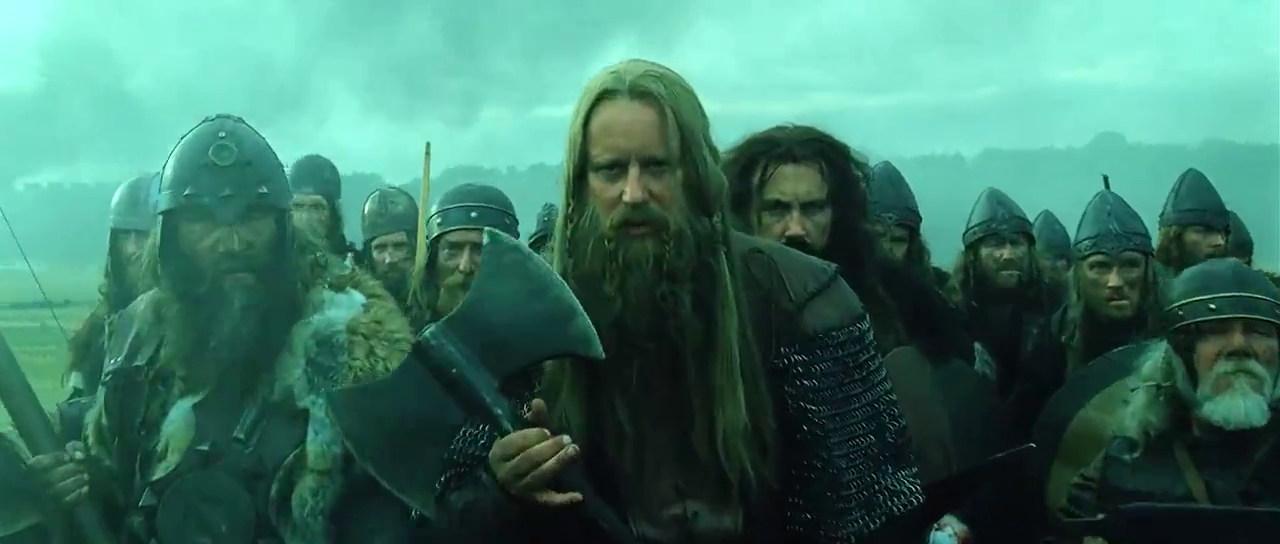
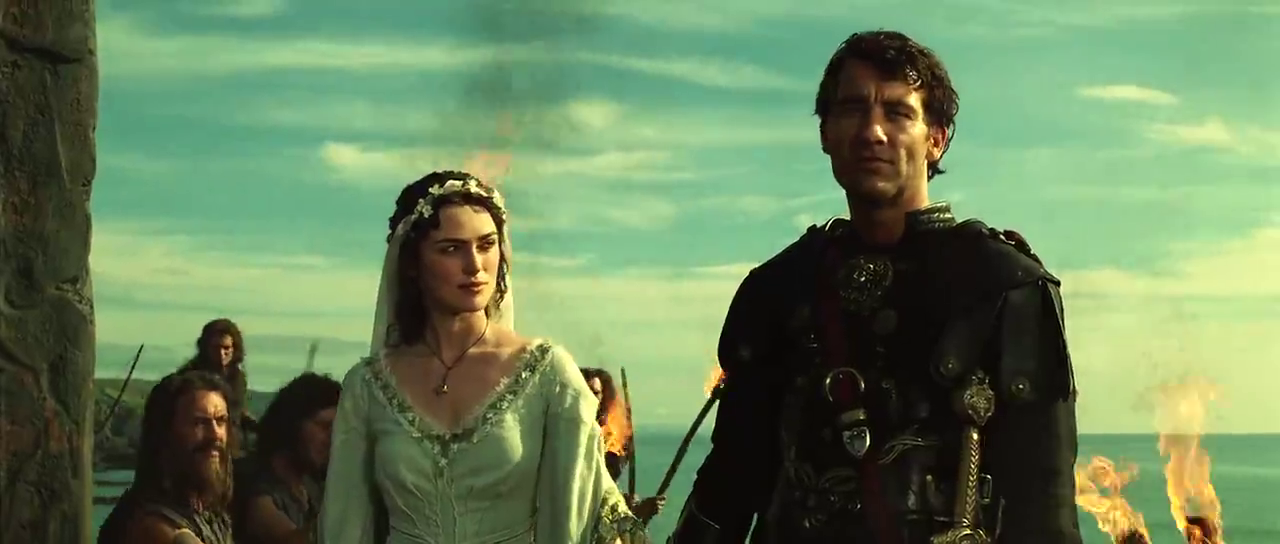
No comments:
Post a Comment